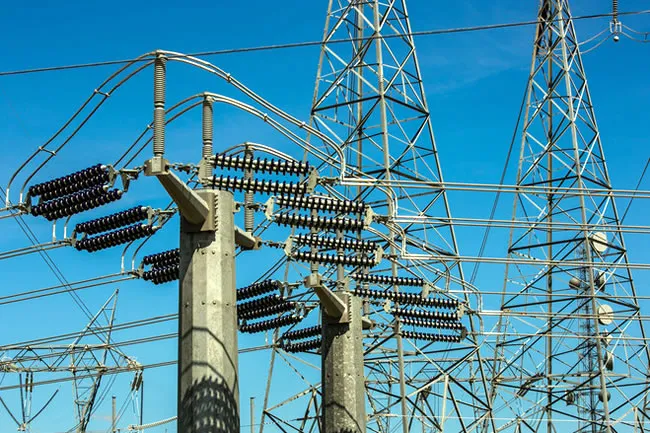Nigeria’s ambition to become a digital powerhouse is crystal clear: fintech platforms, e-commerce enterprises, online learning tools, digital health services—these are the engines of tomorrow. Yet, day-to-day, a far more mundane adversary looms large: erratic electricity. In city markets and rural towns alike, the silent hum of generators underscores a harsh reality—the digital economy’s dreams are grounded when the lights go off.
Power isn’t merely a convenience—it’s the very backbone of digital innovation. Imagine tech firms operating in an environment where power is sporadic, where data centres require endless diesel backups, and where every entrepreneur spends more time fueling generators than building startups. That’s the Nigeria of today. The unrelenting rhythm of outages not only disrupts business but cripples the very confidence that drives digital growth.
Table of Contents

Generators, Solar, and the Cost of Coping
Hundreds of small businesses pivot to private generation as a necessary evil—investing in noisy, expensive diesel units, while others gradually transition to solar panels, inverter systems, or even biogas. These are commendable adaptations, but they’re band-aids on a deeply wounded infrastructure. Solar setups, while cleaner, are still a costly upfront investment; inverters provide temporary relief but rely on chargeable power; and biogas remains niche for many.
Generous though they are, these private solutions don’t tackle the root cause. They become coping strategies—necessary lifelines, but not scalable or sustainable for a population hungry for consistent connectivity and services.
Infrastructure Collapses and Economic Drain
Why is the grid so unstable? First, Nigeria’s national power infrastructure is woefully outdated. Transmission lines and substations, many over 40 years old, fail frequently; with average transmission losses nearing eight megawatts per 100 injected, inefficiency is rife. Coupled with vandalism and attacks—108 incidents recorded in just two years—the system is stretched to breaking point.
Even though Nigeria has the capacity to generate around 13,500 megawatts, only a third reaches consumers. The mismatch between potential and delivery is staggering—and costly. Annually, the country loses roughly $29 billion due to erratic power, directly undermining economic growth and innovation capacity.
This instability doesn’t just hit factories; it scuppers startups, disrupts schools, delays hospital services, and impacts every smartphone user waiting in vain for stable data. When a grid collapse hits, the domino effect is instant and widespread.

Practical Moves: What Can Be Done Now?
Given the urgency, short-term fixes are indispensable. Governments and regulators must act swiftly to lighten the burden on digital businesses:
- Stabilise the Grid in Commercial Areas
Rapid upgrades—swapping out faulty transformers, repairing broken lines, and improving load balancing—can offer immediate relief, especially in bustling hubs such as Lagos, Abuja, Port Harcourt, and Kano. - Support SMEs with Hybrid Energy Solutions
Small businesses power Nigeria’s digital engine. Offering grants or tax breaks to enable adoption of solar-inverter hybrid systems could significantly lessen reliance on diesel generators. - Enhance Metering and Transparency
Expanding pre-paid metering, alongside real-time grid monitoring, helps fight electricity theft while building consumer trust through clearer billing. - Pilot Mini-Grids and Decentralised Power
Leveraging public–private partnerships to establish solar or wind-powered mini-grids in high-density areas would provide reliable power stoppages don’t cripple operations. This diversification builds resilience, especially in commercial clusters.
Looking Forward: Building a Resilient Digital-Ready Power Ecosystem
Beyond quick fixes, Nigeria’s long-term vision must be robust and future-oriented. Here are the foundational pillars for a power system that supports, rather than undermines, digital transformation:
- Rapid Scale-Up of Renewables
Nigeria enjoys abundant sunshine, flowing rivers, and windy zones. A national roadmap focused on expanding solar farms, hydroelectric capacity, and wind energy would go a long way toward freeing the country from fossil fuel dependency. - Sector Reform and Governance Renewal
The electricity value chain—generation, transmission, and distribution—is plagued by inefficiencies and a lack of accountability. Real deregulation, enforcement of contracts, and stronger private sector participation would improve reliability and performance. - Diversify Nigeria’s Energy Mix
With over-reliance on gas, the system remains fragile. Integrating coal, nuclear, and renewable sources would bolster resilience and reduce vulnerability to single-source disruptions. - Empower NERC and Strengthen Oversight
The Nigerian Electricity Regulatory Commission must be empowered with clear authority to enforce standards, protect consumers, and penalise mismanagement.

What’s at Stake: More Than Just Power
Fixing Nigeria’s power grid isn’t only about lighting homes or keeping businesses online—it’s about unlocking the digital economy’s true potential. Reliable electricity signals that Nigeria is open for investment, supports innovation, and is serious about moving beyond rhetoric.
Imagine digital education platforms running uninterrupted, telemedicine services bridging care gaps, fintech applications fostering inclusion, and startups scaling without generator noise as their backdrop. These aren’t dreams—they’re attainable, if power stability becomes a national priority.
Until then, the same Diesel hum that fills markets and offices remains the soundtrack of a digital economy aspiring—but yet to arrive.
Join Our Social Media Channels:
WhatsApp: NaijaEyes
Facebook: NaijaEyes
Twitter: NaijaEyes
Instagram: NaijaEyes
TikTok: NaijaEyes





